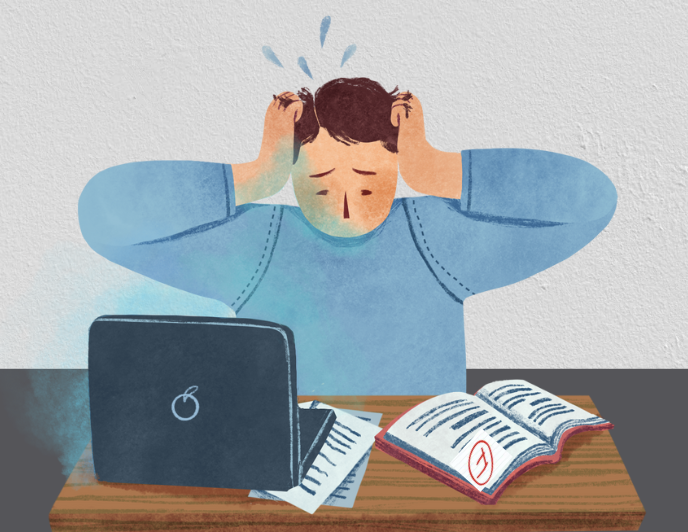Smells of fresh paper, new erasers, and shiny new pens waft through the air as students busily grab supplies off the shelves to prepare for the new year. For every high-achieving student, this time of the year prepares them for the stress. Getting good grades and prioritizing school is, of course important. However, it is so easy to get caught up with doing well academically that it is often placed before mental wellness. This is where the strain of academic validation comes in.
The craving for academic validation can start at a young age, and for many, it follows them through life. People begin putting labels on kids as soon as they can, even without meaning. There were always the kids who got clipped down and the kids who got gold stars on their papers. For many kids, the praise they received became something tangible to measure their success, and they began to chase it.
Furthermore, for many students, getting a bad grade is no longer about the letter grade they receive; it’s about how they view themselves because of it. Every teenager has academic aspirations, and for some people, the emotional connection they form with their grades is unhealthy. This prompts the question: Is getting good grades worth the emotional drainage and stress that students these days go through? Psychology professor and 20-year therapist Jeffery Pedroza states, “Unhealthy consequences include correlating our sense of identity with our grades. I have a poor grade, I am a bad person.” This school approach is unhealthy because receiving a grade not up to standard can cause a student so reliant on academic validation to compare themselves to their peers and never feel adequate.
Some people will question if academic validation truly is an issue because students will end up doing better in school because of it, but the problems it will cause on mental wellness cancel out the pros. Naina Brar (11), a student at Yorba Linda High School, states, “academic validation makes me more motivated to do better in school, but that motivation very quickly becomes stress, which takes a toll on my mental health.” Furthermore, it shows that academic validation can benefit a student academically, but the pressure to succeed is detrimental to mental wellbeing.
As the school year progresses, students must focus on not only doing well in their classes but their mental health. Alisha Bhasvar (11), also a student at Yorba Linda High School, states that she reminds herself, “your grades don’t define you, and taking care of your physical and mental health is worth more than overworking yourself.” And to try to escape the toxic cycle of academic validation
It can be really hard to try to relax about grades, especially if you receive pressure from family members or yourself to do well, but the experience once you let go of the pressure is all the more validating. It is so important that you allow yourself a break to breathe and have something to funnel that stress into. Many people who struggle with anxiety from academic pursuits are benefited by art, pursuing a hobby, or playing a sport. All of which give them an outlet to let go of the negative energy associated with academic validation. Doing well in school should be something we value in society but we shouldn’t let it cost the world’s youth so much strain on their lives.




























